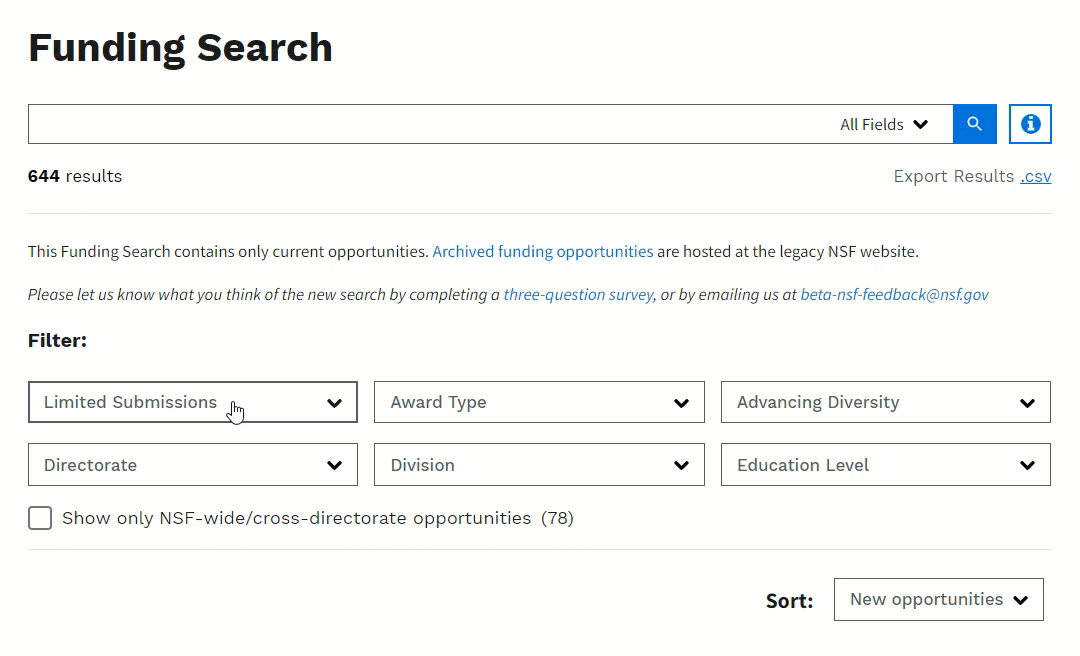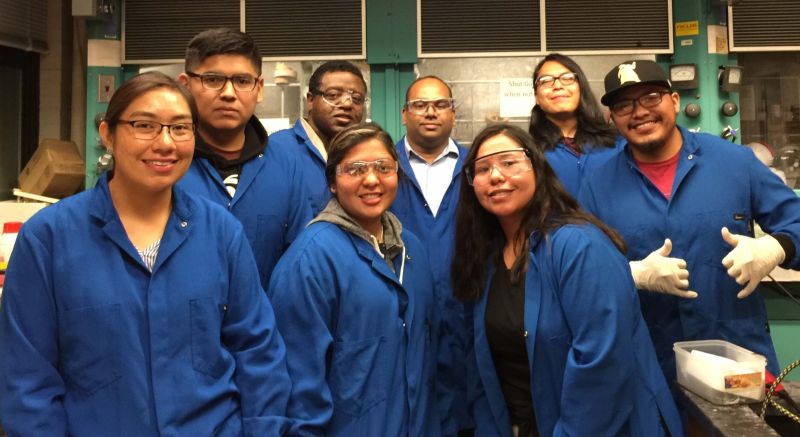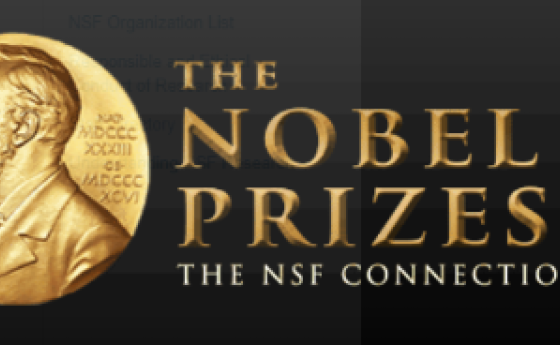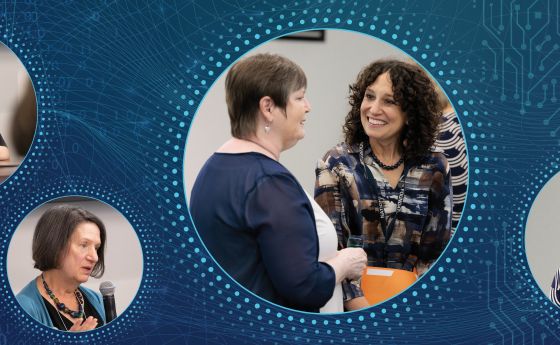
NSF 101: Funding opportunities for minority-serving institutions
Scientists and educators at minority-serving institutions, or MSIs, are crucial to advancing the frontiers of knowledge in the science, technology, engineering and mathematics enterprise. NSF has many programs designed to support researchers at MSIs and broaden participation of outstanding researchers from across a diverse group of regions, institutions and demographic groups.
In addition to core research programs, NSF offers numerous funding opportunities that specifically support faculty members, researchers and educators at MSIs. Below are some tips on how to apply for these opportunities.
Review the possibilities
Review the opportunities available to minority-serving institutions using NSF's Funding Search tool. MSI-focused opportunities can be identified by typing a keyword in the search bar or by using the filters. The "Limited Submissions" filter can narrow search results by opportunities that have limits on organizational eligibility, including MSI-focused programs. The "Advancing Diversity" filter will show programs designed to broaden participation of underrepresented groups in science and engineering research. To identify an opportunity in a particular discipline, further refine the search results by NSF directorate and division.
Find the best program fit
To decide which program is the best fit for a proposal, both the scope of the program and which activities it is designed to support must be considered.
"Especially for first time applicants, it's important to understand NSF's mission and the ways each funding program upholds that mission," says Jody Chase, program director for NSF's Tribal Colleges and Universities Program, or TCUP. "Read the solicitation carefully to understand what a program can and can't fund. For example, with TCUP, we typically don't support construction. But we can support activities such as STEM curriculum development, which builds capacity in instruction and research, or STEM activities such as environmental monitoring, which build upon the colleges' capacity to partner with the community."
Reviewing the specific activities that a program supports can help decide if it's a good fit for a project. Many programs dedicated to supporting MSIs will have multiple funding tracks, each designed to support different activities such as building research capacity and infrastructure, fostering partnerships, or advancing STEM education and education research. Some programs with multiple tracks include TCUP, the Historically Black Colleges and Universities Undergraduate Program, Partnerships for Research and Education in Chemistry, Improving Undergraduate STEM Education: Hispanic-Serving Institutions, and the Computer and Information Science and Engineering Minority-Serving Institutions Research Expansion Program.
Understand how proposals will be reviewed
When proposing fundamental research in a core NSF discipline, there are additional factors to consider. How would an anthropologist at a Native Hawaiian-serving institution choose between the Cultural Anthropology program or the Build and Broaden program? How might an ecologist at an HBCU decide between the Historically Black Colleges and Universities Excellence in Research program or an opportunity within the Division of Environmental Biology? Understanding the NSF Merit Review process can help with these types of decisions.
All NSF proposals are evaluated on the strength of intellectual merit and broader impacts. Proposal reviewers are selected based on disciplinary expertise and understanding of the educational activities and infrastructure that comprise the science and engineering enterprise. This ensures a selection of experts who can give program officers the proper information needed to make a funding recommendation. For MSI-focused programs, program officers often select reviewers who have both subject-matter expertise and strong knowledge of MSIs.
"Both the core NSF disciplinary programs and many of the MSI-focused programs support research that advances understanding of a concept in a specific discipline. MSI-focused programs have the advantage of being uniquely positioned to understand the institutional context in which the research will occur. Typically, the reviewers for the MSI-focused programs have more experience in their working understanding of how research is conducted at an MSI," says Carleitta Paige-Anderson, program director for HBCU-Excellence in Research and the HBCU-Undergraduate Program.
Together, the core disciplinary programs and MSI-focused programs represent NSF’s dedication to supporting fundamental STEM research and education.
Double-check program eligibility
After identifying a suitable program for a proposal, double-check submission eligibility. NSF programs typically utilize MSI definitions provided by the U.S. Department of Education, which are updated and can change on an annual basis. An institution's MSI designation can be verified by consulting the Education Department eligibility matrices and/or the Integrated Postsecondary Education Data System. An administrator at the institution or an NSF program officer may also be able to confirm MSI status and program eligibility. Each MSI-focused program at NSF has its own eligibility criteria that determines which institutions and principal investigators can submit proposals. These details can be found under the "Eligibility Information" section of a program's guidelines.
Pay attention to any additional eligibility criteria beyond that of MSI designation. Some programs may have restrictions on which organizations can serve as the lead institution on a proposal based on previous award activity. For example, some MSI-focused programs currently limit institutional eligibility based on the previous five years of NSF support. Other programs may have restrictions on who may serve as lead principal investigator based on career stage, such as the Building Research Capacity of New Faculty in Biology program.
Reach out to learn more
There are several resources available to provide support while preparing a proposal. Many programs host office hours, present webinars or provide a list of answers to frequently asked questions. Questions about a funding opportunity can also be answered by an NSF program officer. Links to upcoming and previous events, FAQs and program officer contact information will be listed on the program's webpage. Most program officers can be reached by phone and by email and expect to connect with researchers who have questions or are starting the application process.
When contacting a program officer in advance of proposal submission, including a one-page synopsis of the project along with inquiries can be helpful. This "one-pager" should include a brief overview of the proposed project as well as a concise description of its intellectual merit and broader impacts. Program officers will respond to inquiries concerning the institutional eligibility and project scope, the appropriateness of the research idea, and the collaborative partnership and capacity-building aspects of a proposal.
NSF program officers are here to help and welcome inquiries from prospective grantees. As noted by Josie Miranda, program director for the Build and Broaden program, "NSF is committed to supporting innovative research at minority-serving institutions. We want you to reach out to us so you can take advantage of these opportunities and find support for your projects. MSI-focused programs are great places to find a home at NSF for both you and your research."
For additional information on support available to MSIs, please read about NSF's Broadening Participation portfolio.





